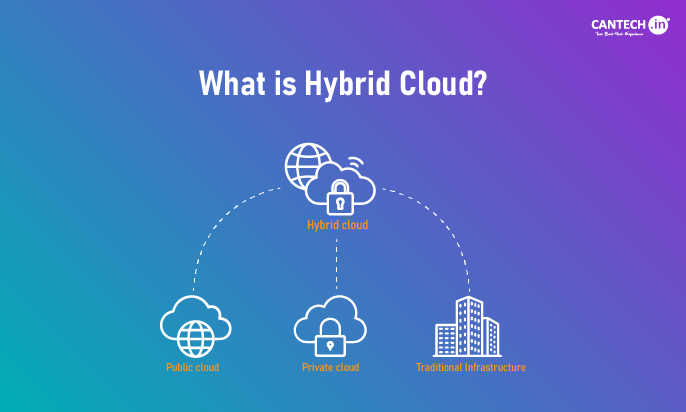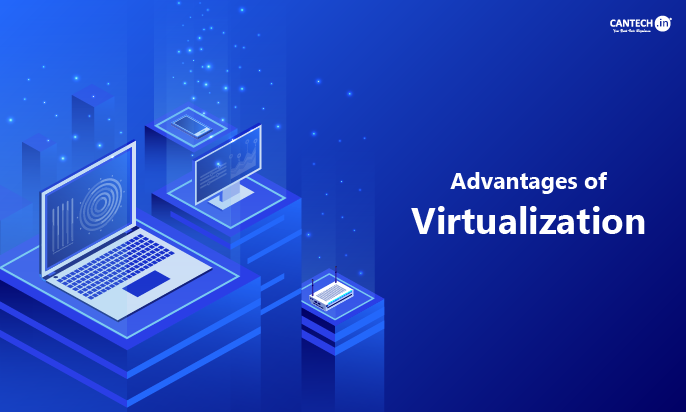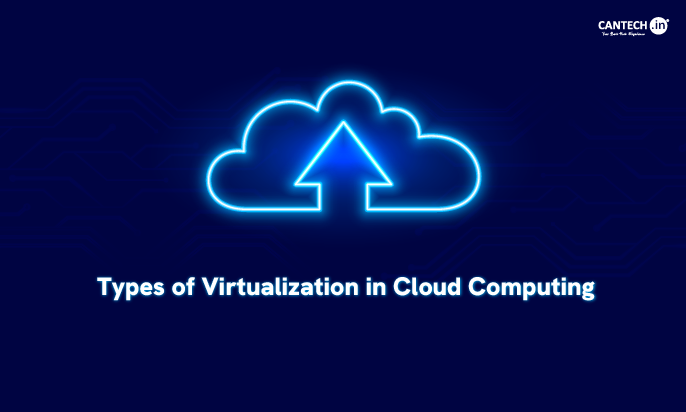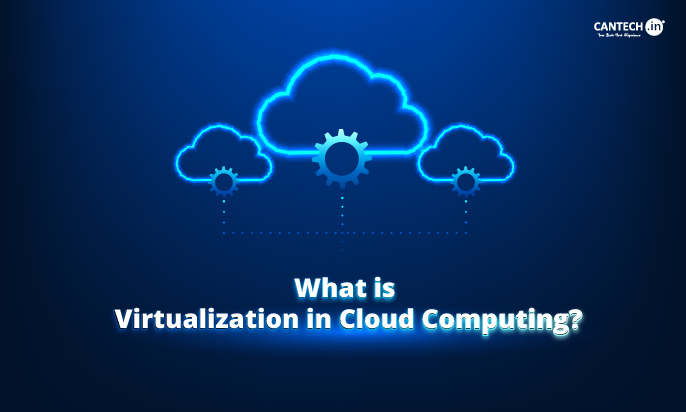Cloud computing is one of the revolutionary approaches toward managing, storing, and processing data in the rapidly changing digital technology landscape. It has revolutionized how organizations operate, innovate, and scale because it offers businesses the opportunity to leverage vast computing resources over the internet. The most used cloud computing model is the public cloud, which is an excellent solution for small-to-medium-sized businesses and start-ups as it provides the flexibility and cost savings they need to scale.
A public cloud is simply one flavour of cloud deployment, where third-party cloud service providers offer computing services and infrastructure over the internet to users in multi-tenancy mode. That is to say, the end-users share resources like storage, processing power, and networking, but everything is taken care of by the provider. The company would opt for a public cloud for access to robust infrastructure, thus saving overhead costs involved with maintaining physical hardware on premises.
For organizations evaluating cloud options, understanding the public cloud architecture, how it works, and its benefits and limitations can be incredibly valuable. This article will explore everything you need to know about the public cloud, from how it operates to why it might be the right choice for your business.
What is a Public Cloud?
It is a model that hosts cloud resources, servers, storage, and applications for the general public over the Internet, with third-party providers such as the Internet. Virtualization technology is going to keep data and processes in a separate area for one tenant but pool them amongst many. It is really cost-effective for organizations in the sense that they pay only for used resources.
Public clouds are maintained on a provider’s data center. The provider manages maintenance, security, and upgrade. Companies need not spend money on hardware or maintain them, saving time and resources for core business activities. Cloud-based services can be accessed anywhere with an internet connection. Thus, public cloud is very convenient for businesses with remote teams or multiple locations.
The most widely used public cloud platforms include Amazon Web Services (AWS), Google Cloud Platform (GCP), and Microsoft Azure. All of these offer services that vary from simple storage and computing power to more complex services, such as machine learning and data analytics, in line with various business requirements.
Cloud Computing Model and Cloud Computing Architecture
The cloud computing model is generally categorized into three service types: Infrastructure as a Service (IaaS), Platform as a Service (PaaS), and Software as a Service (SaaS). All these three models are supported by public clouds, so that an organization can choose the most suitable combination for its requirements:
- IaaS: Infrastructure as a Service Rents basic computing resources such as virtual machines, storage, and networks; allows users to control and manage these resources on demand.
- PaaS (Platform as a Service): The platform allows the development, testing, and deployment of applications without exposing the underlying infrastructures.
- SaaS: Software which is provided over the internet and does not require to be installed or maintained on a particular computer.
This kind of public cloud architecture should be designed to scale out, very secure, and flexible. Public cloud service providers, through virtualization, build isolated instances that exist on a shared platform. Every user’s data and applications are completely segregated from another. Its robust security protocol and redundancy over data prevent user data exposure and support high availability as well.
Advantages of Public Cloud

An organization will try to achieve better operational efficiency, flexibility, and scalability by implementing a public cloud. The right to access the resources from third-party cloud providers gives companies the ability to have robust performance without bearing the costs of owning and maintaining physical infrastructure. Let’s have a closer look at some advantages of the public cloud.
- Cost Efficiency: The public cloud is characterized by a pay-as-you-go pricing model. Companies do not spend a lot of money on expensive servers and data centers; they can use the resources of the public cloud on a subscription or consumption basis. This model ensures that companies pay only for what they use, hence avoiding huge upfront capital expenditures and maintenance costs. As the needs evolve, organizations scale up or down their usage to optimize resource allocation without overspending.
- Scalability: The most appealing characteristic of the public cloud is its ease of scalability. Public cloud services can be scaled up or down instantly, and a company can easily increase or decrease its resources based on its needs. In peak season, for instance, when sales are high for certain products or for the launch of new products, the firm can upgrade its computing power without delay. In inactive, resources can also scale back for optimized operational efficiency that will avoid waste.
- Accessibility: Public cloud provides organizations with access to critical applications and data at any time, from any location. Distributed teams can work collaboratively and remotely without any loss of productivity with cloud-based services that can be accessed from any internet-connected device. This is valuable for companies as this makes it easy especially for people scattered across different locations.
- High Availability and Redundancy: Public cloud service providers, such as Amazon Web Services (AWS), Microsoft Azure, and Google Cloud Platform (GCP), operate extensive networks of data centers located in several geographic regions. The distribution of such infrastructure around the world means that services always have high availability: for example, if an outage occurs at one location, services can be quickly routed through another. This means that the inbuilt redundancy in public cloud offerings is extremely reliable for ensuring companies’ continuous operation and swift recovery in any possible failure.
It will be able to leverage the strengths of the public cloud in terms of efficiency, thereby making productivity levels better and also enable them to react rapidly to market conditions. From small start-ups that are experiencing rapid growth to large enterprises, the public cloud offers an adaptable, secure, and cost-effective way to sustain long-term success.
Public Cloud vs Private Cloud vs Hybrid Cloud
What is relevant in thinking of a deployment model for the cloud is the distinction between public clouds, private clouds, and hybrid clouds. Each offers unique characteristics suited to different types of businesses and operational goals.
- Public Cloud: Services and infrastructure of a public cloud are offered over a provider’s data center and shared between many clients. The shared environment helps reduce costs by distributing resources over several users but retains an isolated data and processing environment for each client. The public cloud provides instant scalability, easy deployment, and a wide array of available services, so they best suit businesses with needs in flexibility, low costs, and low overheads.
- Private Cloud: The private cloud provides an exclusive environment for one organization, and it is often hosted on-premises or dedicated hardware at a provider’s facility. As resources are dedicated to one client, the private cloud offers higher levels of control, customization, and security and is well-suited to organizations handling sensitive data, such as finance, healthcare, and government sectors. But the private cloud, with this dedicated setup, normally comes at a greater cost and requires more management responsibility as compared to the public cloud.
- Hybrid Cloud: Hybrid cloud incorporates elements from both public and private clouds so that businesses can use the most suitable deployment model for each application. For instance, an organization can have its sensitive data in a private cloud for security reasons while using the scalability of the public cloud for less sensitive, high-demand tasks. The hybrid approach represents the best of both worlds with flexibility, optimized resource allocation, and a balanced approach to data management and security.
This sometimes depends on considerations like budget, required control, and data sensitivity. So the factors being matched with the organizational goals are going to choose the cloud model which would enhance the efficiency and match with the requirements of security and compliance.
Checkout our complete guide on Public Cloud vs. Private Cloud vs. Hybrid Cloud
Popular Public Cloud Platforms and Service Providers
There are some significant players in the public cloud world, with each offering specific kinds of services to cater for various business needs. Below, we will take an in-depth look at three of the most prominent public cloud players:
- Amazon Web Services: AWS is one of the leaders in cloud computing with a variety of services such as computing and storage to artificial intelligence and machine learning. Due to extreme scalability and reach to geographically dispersed areas, applications of all sizes and complexity are supported, and its adoption is popular both at start-up and enterprise level. AWS also offers flexible pricing structures, with options to pay for on-demand, reserved, and spot instances, so the user can manage costs efficiently.
- Microsoft Azure: It has emerged as one of the most significant choices for enterprises, mainly those that are already users of the software from the company. As a whole platform of Platform as a Service (PaaS) and Infrastructure as a Service (IaaS) options, Azure makes it easy for businesses to build, deploy, and manage applications. Besides this, the platform allows for integration with Microsoft 365 and Windows Server, and it remains the choice of organizations that try to merge the IT environment into one platform.
- Google Cloud Platform (GCP): GCP is very powerful in big data analytics and machine learning, so this platform is extensively used for data-centric applications. There is a lot of value from advanced capabilities in BigQuery, TensorFlow, and other AI capabilities for people focused on data science and analytics. Google has developed tremendous expertise in data management and security, which can be a strong advantage to companies looking to use cloud-based machine learning solutions.
All of them bring something new to the table, from the wide scalability on AWS, to the enterprise-grade integration on Azure, and even to data-centric offerings on GCP. Assessing what’s their particular needs are would let organizations pick up the best platform in terms of meeting their operational goals.
Public Cloud Architecture and Security
Its public cloud architecture is based on a multi-tenant model, very cost-effective and very flexible in nature but then imposes very strong security measures as well. Advanced security techniques used in the protection of data with the help of public cloud providers include firewall protection and identity management; encryption techniques are also highly adopted on data.
All this notwithstanding, some organizations will still regard the shared environment as being a serious threat to privacy of their data. Still, most providers of the public clouds have something that is referred to as a shared responsibility model: the provider will only secure the infrastructure, whereas the customer will secure the data and the applications in the said cloud. Such a model will be given to a business so as to have some control in the security policy in a public cloud environment.
Why Choose Public Cloud?
The public cloud is ideal for businesses that require flexibility, cost savings, and ease of use. Companies do not have to worry about managing infrastructure since the hardware maintenance, updates, and scaling are handled by the cloud provider. This agility enables businesses to adapt to changing market demands and to innovate at a faster pace.
In addition, public cloud gives the opportunity for remote working, team collaboration, and business continuity, as all data and applications are accessible everywhere. For these reasons, the public cloud is a very practical choice for companies which are seeking an adaptable solution without the overhead of hardware management.
Conclusion
Public cloud offers unmatched flexibility, scalability, and cost efficiency. Business can innovate and grow with its size without requiring the maintenance of physical infrastructure. The key providers of this type are AWS, Azure, and Google Cloud. Companies can tap into a wide variety of services designed to suit various operational needs. Organizations can derive the maximum benefits of cloud technology and maximize productivity and operational agility if they understand varied pricing models and deployment types.
For a cloud partner, a reliable cloud hosting solution – Cantech Cloud Hosting seems to bring together performance as well as security with efficiency. In this way, Cantech cloud solutions, in particular, are tailor-made for companies to achieve the best of every level of growth and also features flexible plans, round the clock support from experts as well as high-tech infrastructures. Whether it be a startup needing rapid scaling, or perhaps a mature one with some complex needs of its own, Cloud Hosting has sturdy, flexible solutions.
The advanced features of Cantech for securing data, having a high level of availability, and managed services have all placed the focus back onto the core operations for businesses and entrusted them with all technical complexities to Cantech. Be it infrastructure management or specialized solutions based on different industry needs, Cantech has developed the cloud platform as one for reliability, efficiency, and peace of mind for those interested in making use of cloud computing for their businesses. Choose Cantech Cloud Hosting and ensure your company stays agile, competitive, and scalable in an ever-changing digital era.
FAQs
What is a public cloud?
A public cloud is a model where the computing services along with other resources are being made available to the broad public through the internet. A public cloud third-party cloud computing service provider will own it. It contains servers and applications, and their storage systems are there, and one can enjoy all the facilities on an on-demand pay-as-you go basis. This model will enable businesses and individuals to access advanced technology without investing hefty sums of money in hardware and infrastructure.
How does public cloud pricing work?
Public cloud pricing typically is a pay-as-you-go model. In this model, users get charged based on their real consumption of resources. Advantages of this model lie within the business organizations having uneven workloads. Such business organizations can scale up or down resources according to demand. Some providers offer their reserved instances at a lower cost with long-term commitment requirements. Others provide hourly or even per-second billing. Such structures of pricing help a company plan its budget effectively as well as enjoy the flexibilities that come with using cloud.
What are the advantages of using a public cloud?
The public clouds have significant advantages in the form of cost efficiency, scalability, accessibility, and high availability. The organizations do not have to spend heavily as there is no significant upfront charge, and it is always a pay-as-you-go pricing model of the public cloud. Public clouds are quite easy to scale based on their business needs at any time, which is very handy for growing companies. Not only that, public cloud services can be accessed from any internet access location, encouraging collaboration and remote work.
How does a public cloud differ from a private cloud?
Key difference between the public and the private clouds is the ownership of infrastructures and the accessibility it provides. It means with a public cloud, large numbers of people are users, but the private has its own single organization holding the infrastructure dedicated exclusively to a single organization that allows enhanced security and more control on the environment. Companies opt for a private cloud when their compliance and regulatory requirements are very stringent or when the data that needs to be maintained is sensitive. In each case, there is an advantage, and an organization needs to choose according to its specific requirements and priorities.
What are some popular public cloud service providers?
There are just a few big players in the public cloud service market, with each one offering different services and benefits. Amazon Web Services is the most widely known, for its broad services, scalability, and reach around the world. Microsoft Azure is also very strong, particularly for companies already using the Microsoft products, as it provides very strong PaaS and IaaS offerings. Google Cloud Platform (GCP) is renowned for big data and machine learning application support, so this cloud computing service is great for any workload that has much data to process. Therefore, when choosing a public cloud service provider, comparison on business requirements is necessary for informed selection.
What industries benefit most from public cloud services?
Public cloud services apply to many sectors: health care, finance, education, retail, and tech, among others. For instance, health organizations store large amounts of data securely in public clouds and process them. Companies in the financial sector use public cloud services for analytics, risk management, and customer service applications. Public clouds have been used by educational institutions to run online learning platforms and collaboration tools for students and faculty. Generally, the public clouds have a great degree of flexibility and scalability and can be appropriate for diverse sectors looking to enhance operational efficiency and innovation.







